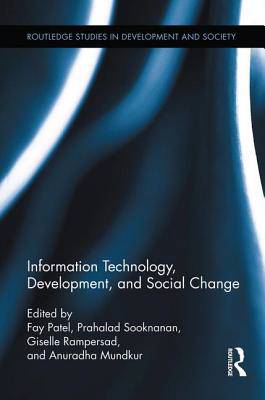
- Retrait gratuit dans votre magasin Club
- 7.000.000 titres dans notre catalogue
- Payer en toute sécurité
- Toujours un magasin près de chez vous
- Retrait gratuit dans votre magasin Club
- 7.000.000 titres dans notre catalogue
- Payer en toute sécurité
- Toujours un magasin près de chez vous
Information Technology, Development, and Social Change
94,95 €
+ 189 points
Description
The speed and cost effectiveness of new information technology has prompted many to view these innovations as a panacea for social and economic development. However, such a view flies in the face of continuing inequities in education, health, food, and infrastructure. This volume explores these issues - along with questions of access, privilege, literacy, training, and the environmental and health effects of information technologies in the developing world - arguing that a higher level of development does not always result from a higher level of technologization.
Spécifications
Parties prenantes
- Editeur:
Contenu
- Nombre de pages :
- 180
- Langue:
- Anglais
- Collection :
Caractéristiques
- EAN:
- 9780415754545
- Date de parution :
- 09-04-14
- Format:
- Livre broché
- Format numérique:
- Trade paperback (VS)
- Dimensions :
- 152 mm x 229 mm
- Poids :
- 249 g






